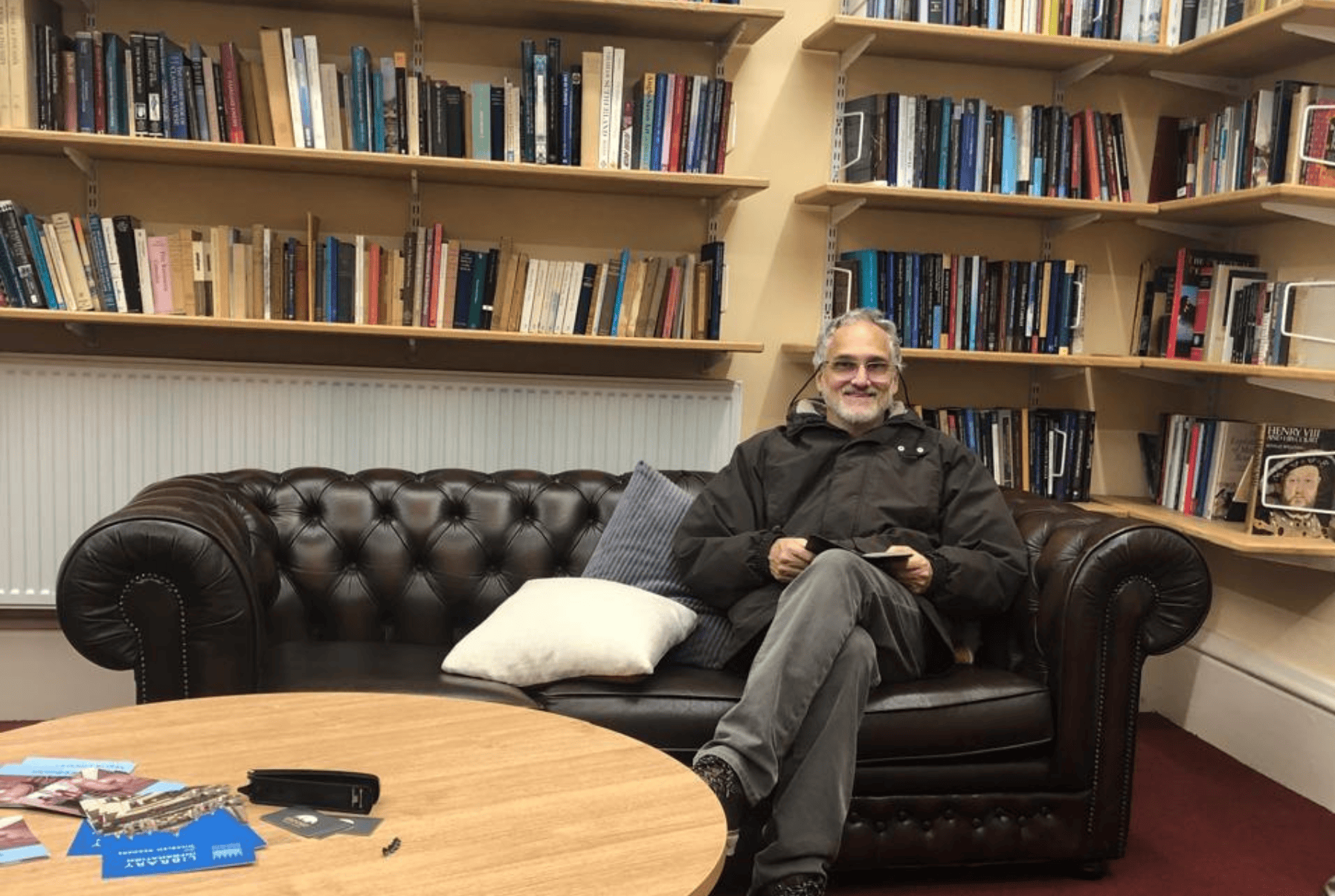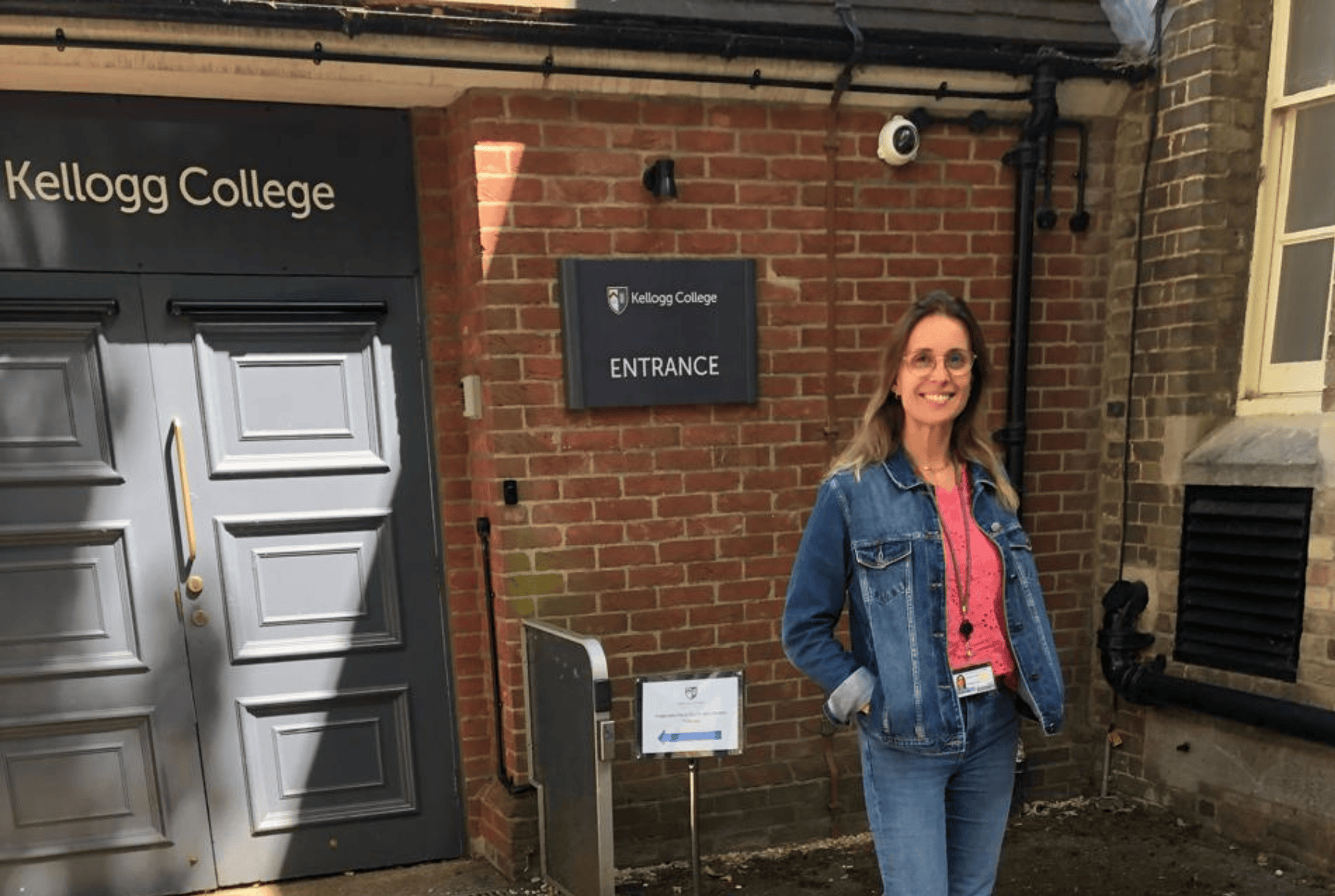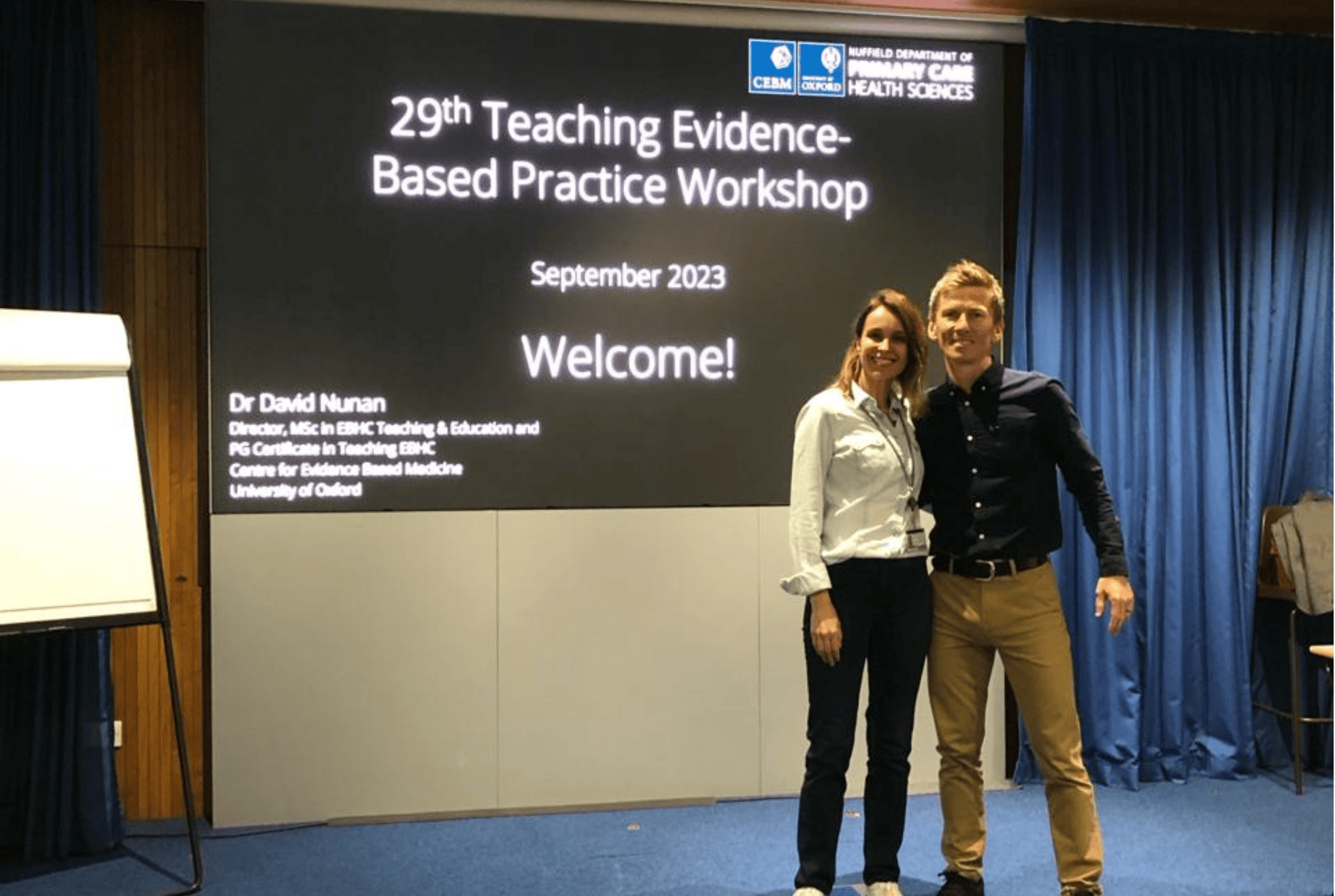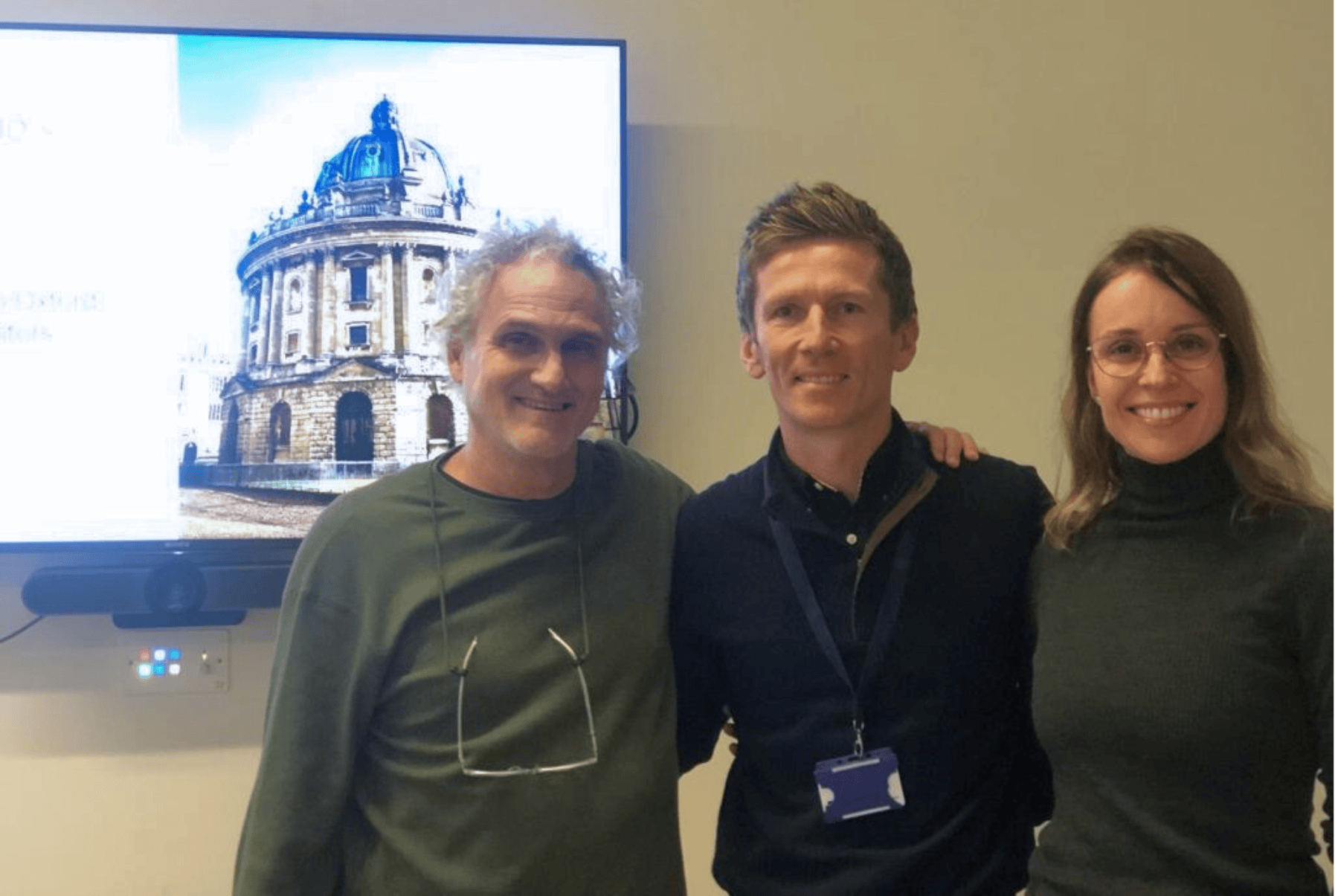Read the latest blog from our Visiting Fellows
Visiting Fellows Professor Ana Paula Pires dos Santos and Professor Paulo Nadanovsky recently completed a 12-month sabbatical at Kellogg College with Dr David Nunan from Oxford’s Centre for Evidence-Based Medicine (CEBM). Ana Paula Pires dos Santos is an Associate Professor, Department of Community and Preventive Dentistry, University of the State of Rio de Janeiro, Brazil and Paulo Nadanovsky is a Professor at the Institute of Social Medicine, University of the State of Rio de Janeiro, Brazil, and a Researcher at the National School of Public Health, Oswaldo Cruz Foundation.
Read about their experience here:
Making informed decisions in health care, supporting undergraduates, and ‘too much dentistry’: our one-year sabbatical at Kellogg
As Brazilian researchers engaged in evidence-based health care for the last decade, we were delighted to participate in the inaugural Teaching Evidence-Based Medicine Course in Brazil led by Dr David Nunan and Luis Eduardo Fontes from the Petrópolis Medical Faculty.
We then contributed to the Oxford Brazil EBM Alliance and initiated plans for our academic visit to Oxford. Despite numerous postponements and bureaucratic hurdles exacerbated by the Covid-19 pandemic and other factors, we eventually arrived in Oxford in December 2022.
During our stay we pursued four primary projects in close collaboration with David.

1. Communicating the numbers involved in health decision-making
In recognising the critical significance of clear and effective communication of statistical information in evidence-based health care, our initial focus was on risk communication. This undertaking involved conducting a systematic review to assess the impact of presenting health statistics in various formats. These include the understanding, persuasiveness, and decision-making processes of both health professionals and the public.
Additionally, we conducted three SWARs (study within a review) with specific aims. Firstly, assessing research integrity within the trials included in our review. Then, comparing outcomes of risk of bias assessments with and without evaluations of baseline imbalance in the trials included in our review. Followed by comparing two screening approaches – manual and semi-automated – for the inclusion of studies in our review. These efforts collectively aimed to enrich our understanding of effective communication strategies and methodological considerations within evidence-based health care.
2. Teaching children to question health claims
Our second project focused on the Informed Health Choices (IHC) project, which is a network of researchers dedicated to developing educational resources that help individuals. In particular, it helps children and adolescents recognise reliable health claims and make informed decisions about their health. We have been involved in this initiative since 2019, mainly by translating the primary school educational resources into Brazilian Portuguese.
Currently, we are working on mapping the Brazilian national secondary school curriculum to assess whether, and to what extent, the content of the IHC project is already included. Additionally, we aim to translate the secondary school educational resources into Brazilian Portuguese as part of this ongoing effort.

3. Too much dentistry
The third and fourth projects centred on dentistry, as we are both qualified dentists in Brazil. One of these projects focused on overdiagnosis and overtreatment within the field of dentistry. The decline in dental caries that occurred in the 1970s had a significant impact on the workload of dentists and prompted redefinitions of dental diseases, while treatment needs vary across branches of dentistry.
It is imperative to address how overdiagnosis and overtreatment in dentistry contribute to underdiagnosis and undertreatment, which create barriers for many individuals in need of dental care. We presented on this topic at the Preventing Overdiagnosis Conference in Copenhagen in August 2023 and authored a viewpoint accepted for publication in a high-impact journal.
4. Evidence-based dentistry
The fourth project involved creating summaries of evidence in dentistry, known as dental fact boxes called OHA! (Oral Health Answers). We aimed to address the overwhelming amount of information found in dental journals and offered succinct answers for dentists and patients. While some tools are currently available, there remains a necessity for a more selective and user-friendly repository of dental information. During our year in Oxford, we developed the methods for creating OHA! and produced five dental fact boxes.

We were thankful to have the opportunity to contribute to Kellogg’s academic activities during our stay.
Other activities
In addition to these four main projects, we have also engaged in activities such as writing a letter to the British Dental Journal where we critically appraised an observational study and explained why its findings were considered unreliable. We also contributed to the Catalogue of Bias blog.
We were thankful to have the opportunity to contribute to Kellogg’s academic activities during our stay. This included delivering a seminar titled “Major challenges in EBM: Evidence for diagnostics”, part of the “Kellogg CEBM Seminar Series” which addressed key challenges in evidence-based medicine and featured three speakers alongside a panel discussion chaired by Jamie Hartmann-Boyce. The speakers covered topics such as overdiagnosis in dentistry, SARS-CoV-2 testing, and self-testing.
Paulo also gave a lecture for the Oxford Evidence-Based Health Care (EBHC) programme at the Department of Continuing Education. It introduced OHA!, including its rationale, and the methods used. It also explored the five dental fact boxes that have been produced thus far.
We provided support to medical undergraduate students for their research projects on research integrity. These include the study “Houses built on sand? Investigating the integrity of trial evidence underpinning UK clinical guidelines”, which aims to assess potential research integrity concerns in randomised controlled trials evaluating pharmacological and non-pharmacological interventions referenced in NICE clinical practice guidelines.
Another undergraduate project was the SWAR registered at The Northern Ireland Hub for Trials Methodology Research titled “Evaluating the integrity of trials included in a systematic review assessing different numerical formats for communicating risk.”

Our stay in Oxford and the collaborative work with David was an extraordinary experience. It enriched us both personally and professionally, for which we are profoundly grateful. As our activities continue to unfold, we are excited about the prospect of nurturing new ideas and projects in the future, inspired by the knowledge and connections gained during our time in Oxford.
The assistance provided by Kellogg’s administration team in navigating the Visa application process and overcoming bureaucratic challenges was indispensable. Without the dedicated support of this capable team, our academic year in Oxford would not have been feasible. We would like to extend our gratitude to the following individuals who played key roles in this process: Elise Cochrane, Gary Walker, Adrian Stokes, Jasmine Buckley, Rhiannon Smith, Richard Birt, and President Jonathan Michie.